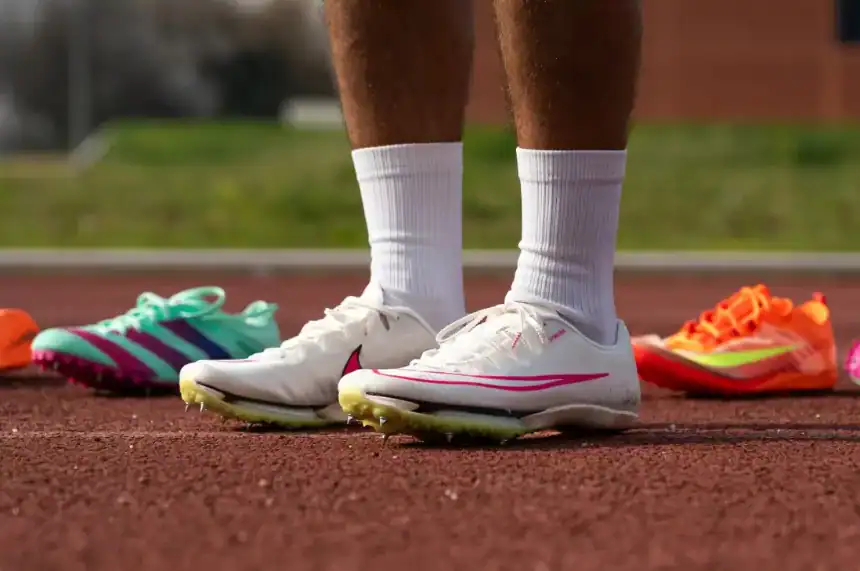Блог
The Role of Mental Preparation in Track and Field Performance

Track and field is a sport that demands significant physical capabilities, including strength, speed, agility, and endurance. However, an essential yet frequently neglected aspect of attaining optimal performance is mental preparation. Numerous elite athletes assert that success in track and field is equally dependent on mental fortitude as it is on physical prowess. A well-trained mind can significantly improve focus, confidence, resilience, and overall athletic performance.
This article delves into the significance of mental preparation in track and field, outlines strategies for enhancing mental strength, and presents techniques that athletes can employ to refine their mindset prior to competition.
Why Mental Preparation is Crucial in Track and Field
1. Enhances Focus and Concentration
Athletes are required to sustain elevated levels of concentration to perform their techniques with precision. Whether it involves a sprinter refining their start or a long jumper coordinating their takeoff, focus is essential. Techniques for mental preparation, including visualization and mindfulness training, assist athletes in eliminating distractions and remaining focused on their performance objectives.
2. Builds Confidence and Reduces Anxiety
Competition anxiety is common in track and field, where split-second decisions and minor errors can determine victory or defeat. Mental preparation strategies, such as positive affirmations and self-talk, can boost self-confidence and reduce nervousness, allowing athletes to perform at their best under pressure.
3. Improves Resilience and Mental Toughness
Competition anxiety frequently occurs in track and field, where even the smallest mistakes or instantaneous choices can influence the outcome of a race. Employing mental preparation techniques, including positive affirmations and constructive self-dialogue, can enhance self-assurance and alleviate anxiety, enabling athletes to excel in high-pressure situations.
4. Enhances Reaction Time and Decision-Making
Rapid reflexes and effective decision-making abilities are crucial in track and field disciplines such as hurdles, sprints, and relays. Athletes who engage in mental preparation strategies, including cognitive training and mindfulness practices, enhance their reaction times, enabling them to make instantaneous adjustments during competitions.
Key Mental Preparation Techniques for Track and Field Athletes
1. Visualization and Mental Imagery
Visualization entails the mental practice of an event prior to its actual execution. Research indicates that athletes who engage in visualizing their success ahead of a competition tend to achieve better performance outcomes. For instance:
- A sprinter can mentally run through their race, picturing a strong start, powerful strides, and a smooth finish.
- A pole vaulter can visualize clearing the bar with perfect technique.
Practicing visualization regularly can reinforce positive neural pathways, helping athletes perform movements more efficiently in real competition.
2. Goal Setting and Mental Clarity
Establishing clear and attainable goals is essential for athletes to maintain motivation and monitor their advancement. The SMART goal framework, which stands for Specific, Measurable, Achievable, Relevant, and Time-bound, serves as a valuable approach for organizing performance targets. For instance:
- A long jumper may set a goal to improve their takeoff speed by 0.2 seconds within three months.
- A middle-distance runner may aim to reduce their race time by 5 seconds in the next competitive season.
Clear goals provide athletes with a roadmap, making it easier to stay focused and committed to improvement.
3. Positive Self-Talk and Affirmations
Athletes’ self-communication significantly impacts their confidence and overall mental state. Engaging in positive self-talk entails substituting negative thoughts with supportive and uplifting language. For instance:
- Instead of saying, “I always mess up my starts”, an athlete can reframe it as, “I am working on improving my starts every day, and I’m getting better.”
- Affirmations like “I am strong, fast, and prepared for this race” can help instill confidence before competition.
4. Mindfulness and Breathing Techniques
Mindfulness training assists athletes in focusing on the present rather than fixating on previous errors or being anxious about future results. Basic mindfulness practices, including deep breathing and meditation, can alleviate stress and enhance mental clarity.
Techniques such as diaphragmatic breathing or the 4-7-8 method are effective in managing nerves prior to a competition and in sustaining composure during high-pressure situations.
5. Developing a Pre-Competition Routine
A structured pre-competition routine can help athletes feel more prepared and confident. This may include:
- A warm-up ritual, such as specific stretches or drills
- Listening to motivational music or engaging in light conversation
- Performing a mental checklist of key performance cues
- Engaging in brief visualization exercises
A consistent routine signals to the brain that it’s time to compete, reducing anxiety and increasing readiness.
Case Studies: Successful Athletes Who Use Mental Preparation
Many world-class track and field athletes attribute their success to mental conditioning. Some notable examples include:
- Usain Bolt: The world’s fastest sprinter often used visualization to mentally rehearse races before stepping onto the track. He also maintained a relaxed and confident demeanor, which helped him perform under immense pressure.
- Simone Biles (although primarily a gymnast, her approach applies to track athletes): She incorporates mindfulness, deep breathing, and visualization into her training routine to stay focused and composed.
- Michael Johnson: The legendary 400m runner emphasized goal setting and visualization as key aspects of his training regimen.
Заключение
The role of mental preparation in track and field performance cannot be overstated. Just as athletes dedicate hours to perfecting their physical techniques, developing a strong mental game is equally important. By incorporating techniques such as visualization, goal setting, positive self-talk, mindfulness, and structured routines, athletes can enhance focus, boost confidence, and improve overall performance.
Whether you’re a beginner or an elite athlete, prioritizing mental preparation can help you unlock your full potential on the track. Start implementing these strategies today, and experience the benefits of a stronger, more resilient mindset in competition!






